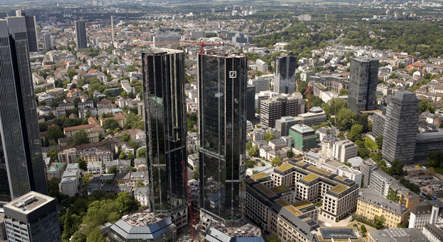The bank launched an internal inquiry at the end of May into potential breaches of data privacy law in connection with the affair, Spiegel said in its latest edition to be published Monday.
Chief executive Josef Ackermann promised a “zero tolerance” approach over the affair at an annual general meeting of the bank.
Detectives “kept an eye on the movements of these people, and made inquiries as to who they were meeting and when”, said Spiegel, which had seen a report by a law firm on the matter.
Victims of the espionage included a representative from union Verdi on the supervisory board, Gerald Herrmann, who was “suspected of having disclosed the company’s third quarter results in 2001” to journalists, Spiegel said.
In 2006, managers were spied on because of their suspected links to media mogul Leo Kirch, who was involved in a legal battle with Deutsche Bank, the magazine reported.
Spiegel also said minority shareholder Michael Bohndorf, a lawyer living in Ibiza, Spain, was spied on.
Several detective agencies may have been involved in the affair.
Among the agencies is one led by a former agent of the Stasi, the notorious secret police in the former East Germany, who was also implicated in a scandal at German phone giant Deutsche Telekom.
Deutsche Bank even used “female bait” to find “personal weaknesses of certain shareholders”, the magazine added.
The bank’s supervisory board will be informed of the contents of the report shortly at an extraordinary meeting.
Germany’s financial service regulator Bafin has launched an investigation. Deutsche Bank was not available for comment.
Scandals over violations of privacy law have rocked the German corporate world in recent months, notably at railway company Deutsche Bahn and Deutsche Telekom.



 Please whitelist us to continue reading.
Please whitelist us to continue reading.
Member comments